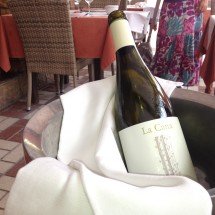Law Offices of John P. Connell, P.C.: Under Massachusetts law, restaurants in the possession of either an All-Alcoholic Beverages License or a Malt and Wine License are prohibited from allowing patrons to bring their own alcohol on to the premises, a practice widely known as “BYOB.” Yet this statewide ban is only in affect when the restaurant has an existing liquor license. Restaurants without existing liquor licenses, on the other hand, may or may not be allowed to obtain BYOB licenses depending on the municipality in which they are located. The Massachusetts Alcoholic Beverages Control Commission (“ABCC”) defers to local municipalities on the issue of whether to allow or grant BYOB or BYOB licenses in their particular town or city.
A city or town’s local licensing authority may choose to either ban the practice; allow it with some regulation; or remain silent on the issue. Silence on the issue is equivalent to legal authorization. The town of Northborough, for example, has no policy on BYOB and therefore permits any restaurant to allow the practice by default. In early October, however, Northborough’s Selectmen Vice Chairman Leslie Rutan stated that she would suggest regulating the practice “specifically to ensure that business owners would be able to cut someone off when they’d had too much.” While allowing over-serving, serving to under aged minors or another otherwise prohibited practice in licensed premises can cause a licensee to have their liquor license suspended, un-licensed premises face no such potential discipline because there is no licensee at risk.
The trend in Massachusetts, therefore, is for legislature to regulate BYOB by issuing BYOB licenses. At an October 11th meeting in Marblehead, the Board of Selectman reviewed local regulations governing BYOB and, after having its Town Counsel specifically draft new ordinances allowing for BYOB Licenses, the Board of Selectmen identified key provisions of these new ordinances for approval at their next meeting. Of the provisions, several noteworthy ones included: a limit of five (5) twelve-month BYOB licenses within the town at a cost of fifty dollars each; a limit on the amount of alcohol each patron would be able to bring with them to the establishment; police Department approval for the issuance of a BYOB License; and a specific obligation for the establishment to ensure patrons do not drink excessively. A BYOB licensee that allows traditionally unacceptable practices to occur on the premises now, therefore, risks the loss of such a license.
In contrast, the City of Boston prohibits BYOB altogether. Whether an establishment is in the possession of a liquor license or not, BYOB is banned. Among the other cities banning this practice are Cambridge and Somerville. Still, with the state’s liquor license quota binding each city to a limited number of available licenses, the BYOB practice could gain popularity in other municipalities.
CONTRIBUTED BY COURTNEY MCGEE

